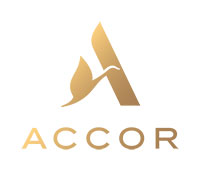
U.S. Hotel Transactions at Four-Year Low but Pickup Expected Later in 2009 (United States)
|
 |
U.S. Hotel Transactions at Four-Year Low but Pickup Expected Later in 2009 (United States)
|
Category: North America & West Indies / Carribean islands - United States - Industry economy
- Figures / Studies
This is a press release selected by our editorial committee and published online for free on 2009-03-06
Jones Lang LaSalle Hotels Releases 2008 Hotel Investment Highlights Report
Jones Lang LaSalle Hotels announced today that the volume of U.S. hotel transactions reached $8.5 billion in 2008, down from the record $45 billion achieved during 2007. According to Jones Lang LaSalle Hotels’ proprietary database, which tracks transactions $10 million and above, decreasing liquidity and deteriorating demand fundamentals caused transaction volumes to trail off as the year progressed.
“The first quarter of 2008 was the strongest, with transactions amounting to $3.2 billion, slowing to $684 million in the fourth quarter. Despite marking a precipitous fall, transaction volumes in 2008 still exceeded the volumes realized during the trough years of 2001 to 2003,” said Arthur Adler, managing director and CEO-Americas for Jones Lang LaSalle Hotels.
Portfolio deals marked the most dramatic decline, down 88% to $3.8 billion in 2008. Difficulty in obtaining financing also caused the average single-asset transaction size to decrease by 20%.
“Private REITs were the largest buyer of hotel assets during 2008. While overall U.S. transaction volume dropped by 81% in 2008, private REITs’ investment in hotels actually increased by one third,” said Tom Fisher, a managing director for Jones Lang LaSalle Hotels. Institutional investors and owner/operators were also among the more active buyers during 2008.
Highly leveraged buyers moved to the sidelines in 2008.
“Private equity groups, having invested nearly $50 billion in U.S. hotel real estate from 2005 to 2007, were net sellers during 2008. We do not expect them to re-emerge as active buyers in the near term until operating fundamentals stabilize and liquidity improves,” said Fisher.
As access to credit remains exigent, alternative lenders have emerged for both senior and mezzanine lending given the favorable risk-adjusted returns that can be achieved. These alternative lenders will include institutional investors, private equity funds and some REITs who will exploit the opportunity to achieve favorable risk-adjusted returns by participating in the more senior tranches of the capital stack and earn wide spreads to treasury rates.
Transactions are expected to pick up later in 2009 as owners face more distress due to cash flow shortfalls or as loans reach maturity. “As lenders increasingly take control of assets, they will sell some hotels as liquidity increases. Government intervention will likely cause loans to be written down, which will allow lenders to sell at current market values. Furthermore, investors will increasingly dispose of assets as the gap between sellers’ expectations and investors’ view of value narrows,” said Adler.
|
|







